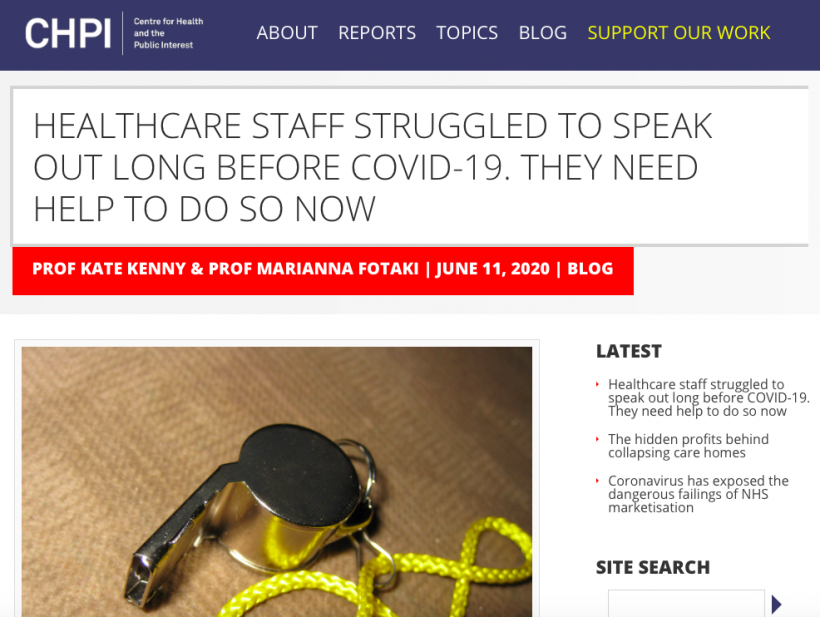Prof Kate Kenny and Prof Marianna Fotaki wrote on whistleblowing in healthcare and COVID-19 for CHPI
A new commentary by Professor Kate Kenny (NUI) and Professor Marianna Fotaki (WBS) was published by the Centre for Health and the Public Interest (CHPI) on 11 June 2020. The article maps the whistleblowing landscape in healthcare before and during the Coronavirus pandemic, and provides expert advice on how to protect healthcare workers facing retaliation for speaking out.
‘In May we learned that healthcare staff were being threatened with losing their jobs for speaking publicly about the crisis that lack of protection was creating.
This is not new in the NHS, where drawing attention to wrongdoing and risks has long been a problem, forcing staff to become whistleblowers, often at high personal cost to themselves. Whistleblowing is prevalent but difficult in the health sector, because of hierarchical structures, reinforced by constant pressure to save money due to chronic underfunding, leading to organizational defensiveness and blindspots.’
